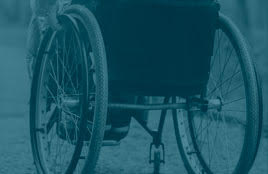One might think that the Pennsylvania Legislature had some weighty issues to resolve before they went on summer break. Hmmm. Let’s see. Funding for the Philadelphia Schools? Insurance for the poor? Sadly, these issues did not get properly resolved before summer recess. What did happen? Well, for one thing, the Pennsylvania Senate passed the Benevolent Gesture Medical Professional Liability Act (“BGMPLA”). Don’t you love it when they give laws cool sounding names?
What is the BGMPLA you ask? If it passes, it will be a law of evidence that says that if a doctor apologizes to his patient because of a bad outcome, that apology cannot be used as evidence at a medical malpractice trial. Yup, that is how the State Senate spent its time in the weeks before summer break. The thinking behind this potential law is that if a doctor is free to apologize for a medical mistake without it being used against him in a court of law, people would be less inclined to sue. Believe it or not, this law has been passed in 36 other states and there are some who contend that it has served to reduce the number of medical malpractice cases filed in those states.
Personally, I and most other trial lawyers do not care if such a law is passed. I have no problem if apologies from a doctor to a patient are inadmissible at trial. As far as I’m concerned, you don’t prove negligence by showing that a doctor apologized. You prove negligence by showing that you are right about the facts, the medicine involved in the case and the law.
One might think this bill could be easily passed. But you know the old saying, “Give a mouse a cookie and he is going to ask for a glass of milk.” (A line made famous by Glenn Close in the 1997 movie Air Force One.) Our Congressmen who align themselves with the insurance industry want more. Not only do they want apologies to be inadmissible at trial, they want all admissions of negligence to be inadmissible as well. So if a doctor screws up and injures a patient do to his alcohol dependency, and admits he screwed up to the patient, that admission cannot be used at trial. Even if a physician is a mensch and owns up to his negligence, insurance–friendly Congressmen want to keep that out at trial as well. Did I use the word silly in the title of this blog? I should have used the word asinine.
Fortunately, the bill that was passed by the Senate does not make statements of negligence or fault inadmissible. Unfortunately, the House of Representatives previously passed a version of the BGMPLA that includes making admissions of negligence inadmissible at trial. How will all this stupidity end? I guess we’ll just have to wait for the next Congressional session.






